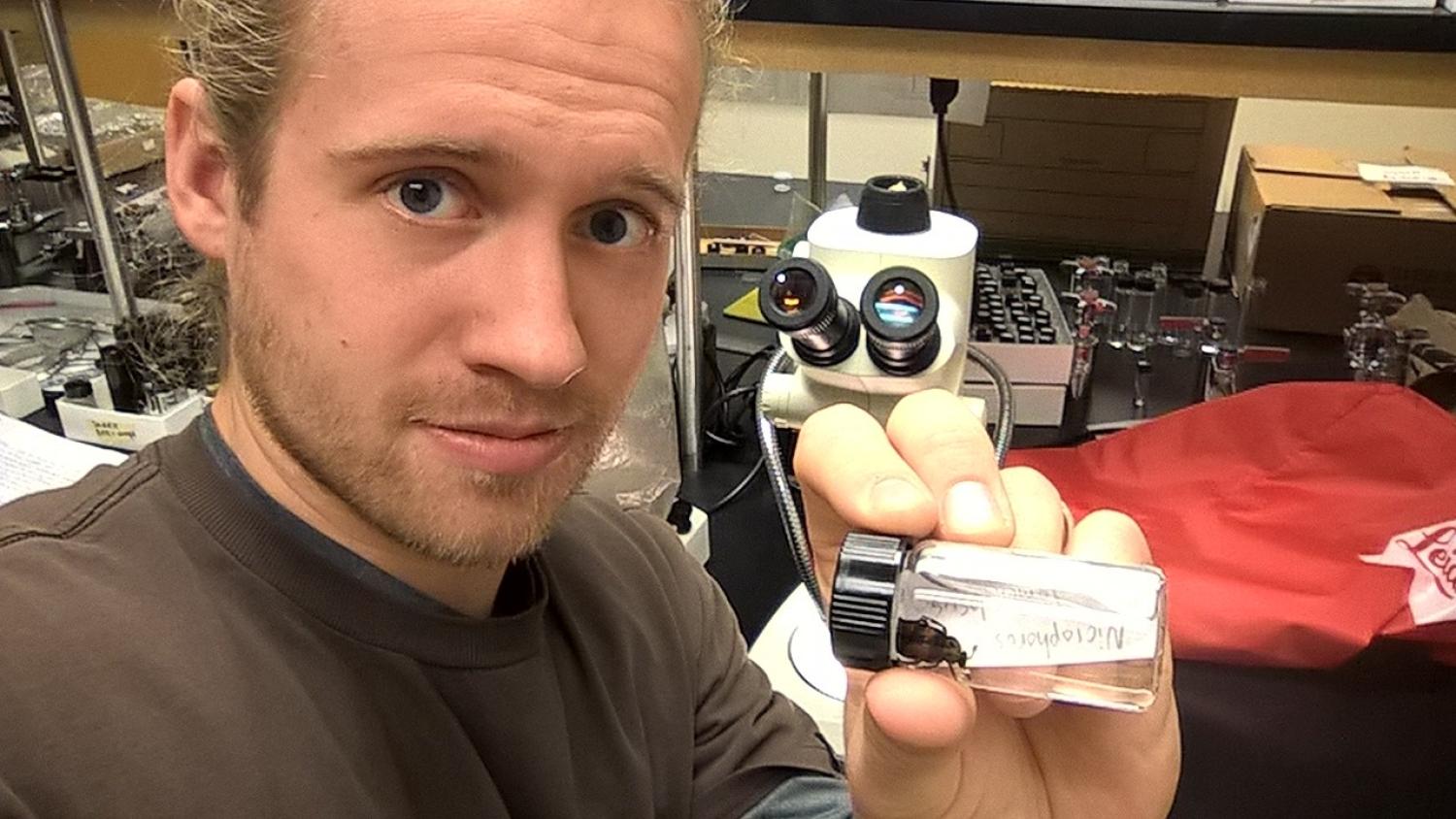Meat-eating Beetles are important too! - Tyler Streb
Hi there, my name is Tyler Streb, an Evolutionary Biology and Ecology senior here at CU. In also pursuing an Atmospheric and Oceanic science minor, my primary interest lies in researching how abiotic factors such as adverse weather events, patterns and climate change influence biotic processes. Living in an environment so swiftly changing is already a concern for many species, and by studying active acclimation, tolerance and extinction we can better seek out the best means of potential conservation.
This past summer I worked as a U.R.O.P. grant recipient on Boulder County Open Space properties along the St. Vrain river. Together with a few great peers, we sought to study the effects of the great flood of 2013 on native cavity and ground nesting bee community structures. While no statistical conclusions have been drawn yet, suffice it to say that those ecosystems inundated by floodwater were devastated and largely washed away.
Currently I am working on an honors project with Dr. Christy McCain examining Carrion Beetle abundance along elevational transects across the Colorado Rockies. Given the reliance of this Coleopteran family on small-nonvolant mammals as a food source, we expect a relationship of similar abundance and distribution to exist between them. Depending on what the results show, this study may open ground for further investigation into whether this particular relationship can serve as a proxy for climate change altitudinally and latitudinally.



